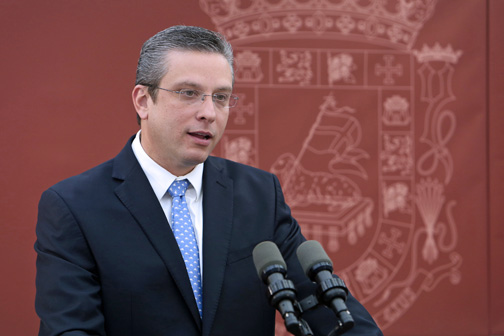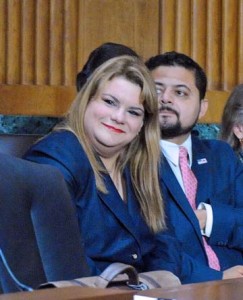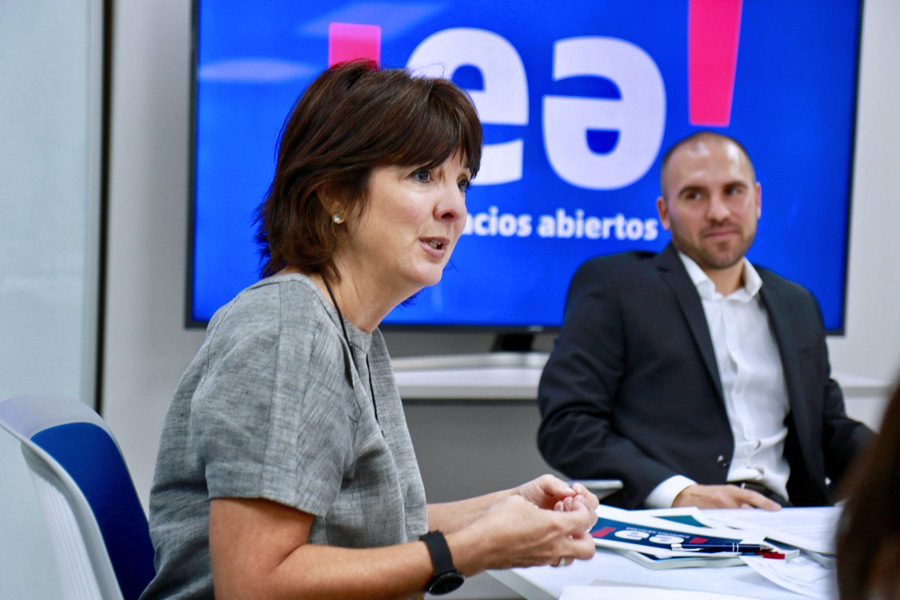Gov: Paying $354M due depends on creditor talks


Gov. Alejandro García-Padilla’s testimony in Congress today will focus on the need for that body to act in favor of Puerto Rico.
A decision by the Puerto Rico government to make the $354.7 million payment on Government Development Bank Senior Notes due today will come down to the wire and will depend on the outcome on talks with creditors, Gov. Alejandro García-Padilla said.
During a news conference at La Fortaleza Monday, García-Padilla said the determination would come either late Monday or sometime today, when he will be in Washington D.C. testifying before the Senate Judiciary Committee.
Paying is a “complex decision” because how it is handled will have an effect on other debt due in 2016, the governor said. The GDB’s obligation includes $273.3 million backed by the Commonwealth’s General Obligation constitutional guarantee. There is no grace period on the debt due, the government confirmed.
“If we decide to pay, the money has to be there because the government can’t bounce a check. We’ll have to make fiscal adjustments,” he said.
The next major payment the Commonwealth is facing is $331.6 million in GO’s on Jan. 1. The government also has until Dec. 20 to disburse some $120 million in Christmas bonuses to central and municipal employees, as established by law. During the news conference, he also refrained from confirming if the money is available to make any of the payments.
“There’s no extra money. But the Christmas bonus is something we have to pay by law,” he said.
The next two weeks are critical for Puerto Rico, he said, because that is what is left of the current Congressional session.
Today’s hearing to discuss Puerto Rico’s fiscal situation will consist of two panels, the first composed by Gov. Alejandro García-Padilla and Resident Commissioner Pedro Pierluisi. A second panel is headed by: Popular Inc. CEO Richard Carrión; Carlos Colón de Armas, finance professor at the University of Puerto Rico Graduate School of Business; Alex J. Pollock, resident fellow at the American Enterprise Institute; Stephen Spencer, managing director at Houlihan Lokey; and Richard Ravitch, former lieutenant governor for the State of New York.
Among the possible issues to be discussed at the hearing is the need to create a federally appointed fiscal control board to help straighten out Puerto Rico’s financial mess.
While García-Padilla is awaiting for the legislature to submit the final draft of the bill that with his signature would create a local oversight board, the governor said Monday he would support a federal body only if “it respects Puerto Rico’s autonomy.”
“If it doesn’t respect it, then I would oppose it. Furthermore, the United States would have a problem with the United Nations if it violated Puerto Rico’s autonomy,” García-Padilla said.
COFINA bondholders address ‘superbond’
The island is buckling under the weight of some $73 billion in public debt, which the governor has already declared “unpayable.” To address the problem, the GDB has said it will present a so-called “superbond” to creditors to consolidate the debt owed by the majority of the Commonwealth’s 18 entities.
On Monday, the senior creditors of the Puerto Rico Sales Tax Financing Corporation (known as “COFINA”) reacted to media reports suggesting the proposed new instrument would also rely on a consolidation of revenue streams.
“While it is unclear if this consolidation would include the portion of the sales and use tax that is COFINA’s property, it is important to note that the usage of COFINA revenues without our consent would violate Puerto Rican and U.S. Constitutions,” the creditors said in a statement.
“We await further details of this proposed ‘superbond’ and look forward to working constructively with all parties to reach a viable plan that places the Commonwealth on the right path to economic sustainability,” they said.
“As one of the very few secured creditors in the Puerto Rico debt structure, we expect that our property rights will be protected. COFINA has been the Puerto Rico debt issue that individuals and institutions both on and off-island have most trusted with their capital, retirement accounts and life savings. The Commonwealth must respect the rights of retirees and creditors,” the bondholders concluded.
‘Dire consequences of default’
Meanwhile, House Minority Speaker Jennifer González warned of the “dire consequences of a future default.”
“Defaulting is not an option,” she said, recalling that in 2009, then GDB President Carlos García warned that “Puerto Rico can never contemplate a default given the catastrophic consequences that it would represent.”
“It was a blunder to default on the $57 million payment for the Public Finance Corporation at the time when the GDB’s cash balance stood at [more than] $1 billion. The damage inflicted to Puerto Rico’s credibility in news headlines around the world, far exceeded the $57 million needed to satisfy that debt to the creditors,” González said.
“Any default on the debt, be it on the GO’s, COFINA, our most senior debts, or any or the other junior debt, creates negative reverberations on the investment community and the financial institutions, which are essential in the turnaround that our economy needs,” said González, of the minority New Progressive Party.











